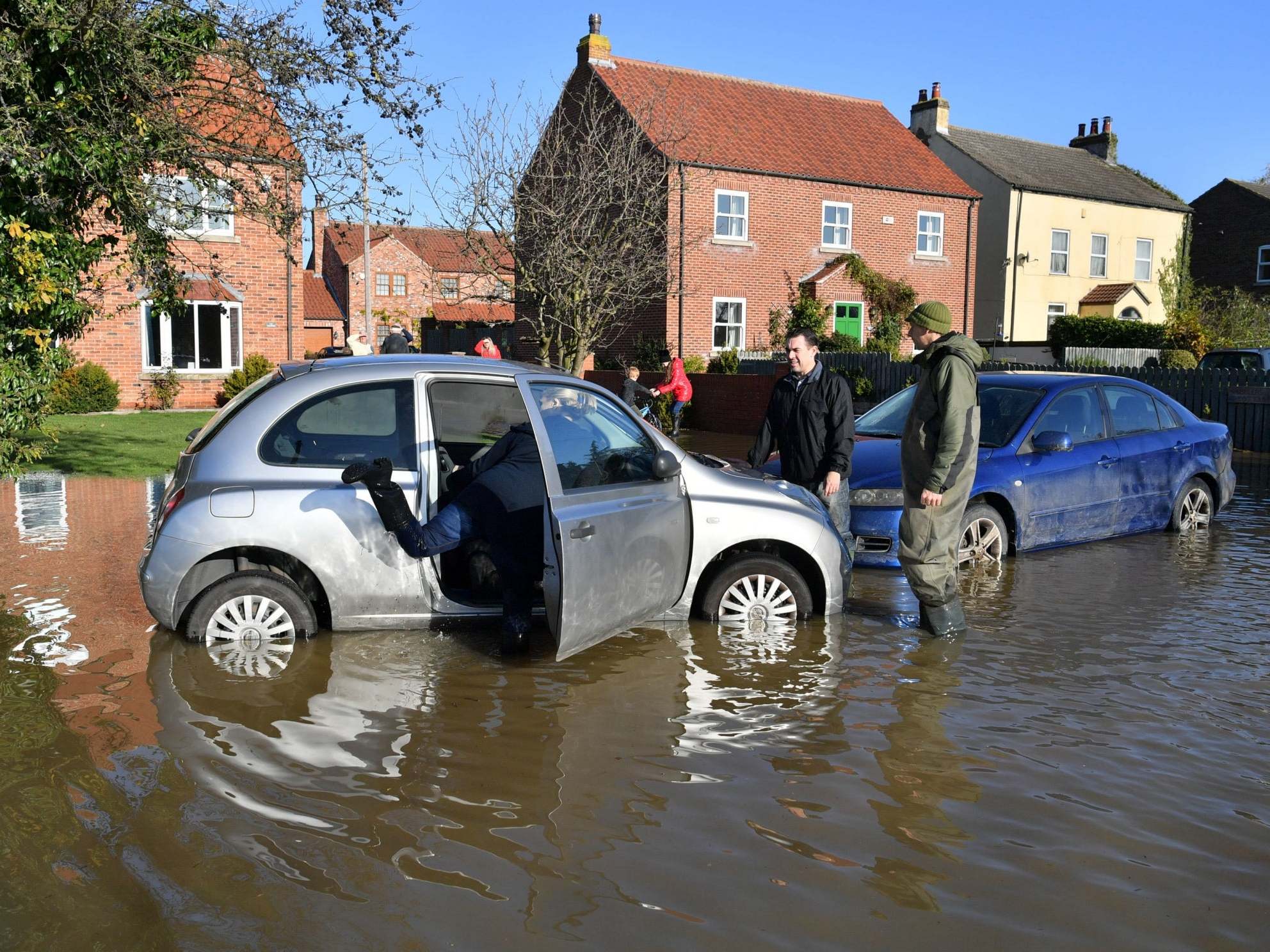Boris Johnson’s complacency about the floods could change the tide of votes in the north
Editorial: The flooding in Yorkshire and parts of the East Midlands highlights how unsatisfactory, to say the least, it is to hold a general election in the winter

“If this had happened in Surrey instead of Yorkshire and the East Midlands, I think it would have been a very different story.”
Jeremy Corbyn’s remark about the floods across large areas of England obviously stung the prime minister into repentant action. Having previously ruled out calling a state of emergency, and having turned a tragedy for many into a photo opportunity by turning up with a mop (which he was incompetent at using), Boris Johnson has now put on his serous face and called a meeting of Cobra.
Mr Corbyn claimed that the move had only been triggered after he had written to Boris Johnson. Mr Johnson’s spokesperson claimed that the decision had been made before.
In any case, the prime minister has, belatedly, demonstrated some sensitivity to what his fellow citizens are going through. He might have reflected a little earlier that the floods have submerged large numbers of swing voters in marginal constituencies.
Mr Johnson’s palpable complacency about the north seemed to confirm everything northerners suspect, and undid whatever marginal political advantage Nigel Farage may have handed to him in recent days. A Labour politician promising to spend “unaffordable” billions on flood defences would certainly find a ready audience in towns, villages and cities around the River Don. If it’s good enough for London to have the Thames Barrier…
So, the voters are not impressed. They might also ask some more searching questions about why these floods have taken place. Without wishing to be alarmist, or facile, there is a legitimate question about whether they are yet another extreme weather event that should serve to remind us that there really is a climate emergency taking place on our streets and in our housing estates. It is not necessarily something easily ignored, taking place far away in the Arctic Circle or Indonesian rainforests.
Northern voters – as they currently are – are also entitled to ask some sharp questions about civil defences, and where money has been spent. The serious emergencies that took place in the Cotswolds and Somerset a few years ago provided justification for taking preventative measures; so did the unusually large flooding in Derbyshire and in the Lake District. The question remains, however, about whether there was more that could and should have been done – and whether the regime of austerity resulted in yet another false economy so far as the long-term security of the people is concerned.
The flooding in Yorkshire and parts of the East Midlands also highlights how unsatisfactory, to say the least, it is to hold a general election in the winter. Even before the countryside was inundated, the cold damp dark evenings made conventional political campaigning more arduous than it needed to be – and the election was unnecessary in any event, given that the Brexit legislation had been given a second reading in the Commons.
It was an opportunistic dash to the polls by a prime minister desperate for his own personal mandate, and the country is having to pay the price with one of the most shambolic and confused election campaigns witnessed in decades. And we are only into the second week.
What will happen if we see more bad weather up to and including polling day? What does Scotland do if it is unable to vote because of the severe cold and if rural polling places become inaccessible? Or more areas of England become flooded? Is the general election to be postponed? Or rerun? Or just in those areas most affected? In which case, what kind of a mandate does such an election bestow on the “winner”?
It is true that the British have been dragged to the polls in the cold and rain before, but it has not always been necessary – and they have not thanked the governments that asked them vote.
The real danger for all the parties is that the turnout is so randomly depressed it both undermines the legitimacy of the exercise, and lays it open to a charge that one or other of the parties has gained an unfair advantage from differential turnout. The floods will, eventually subside, but the consequences of this oddest of general elections will be with us for years to come.
Join our commenting forum
Join thought-provoking conversations, follow other Independent readers and see their replies
Comments